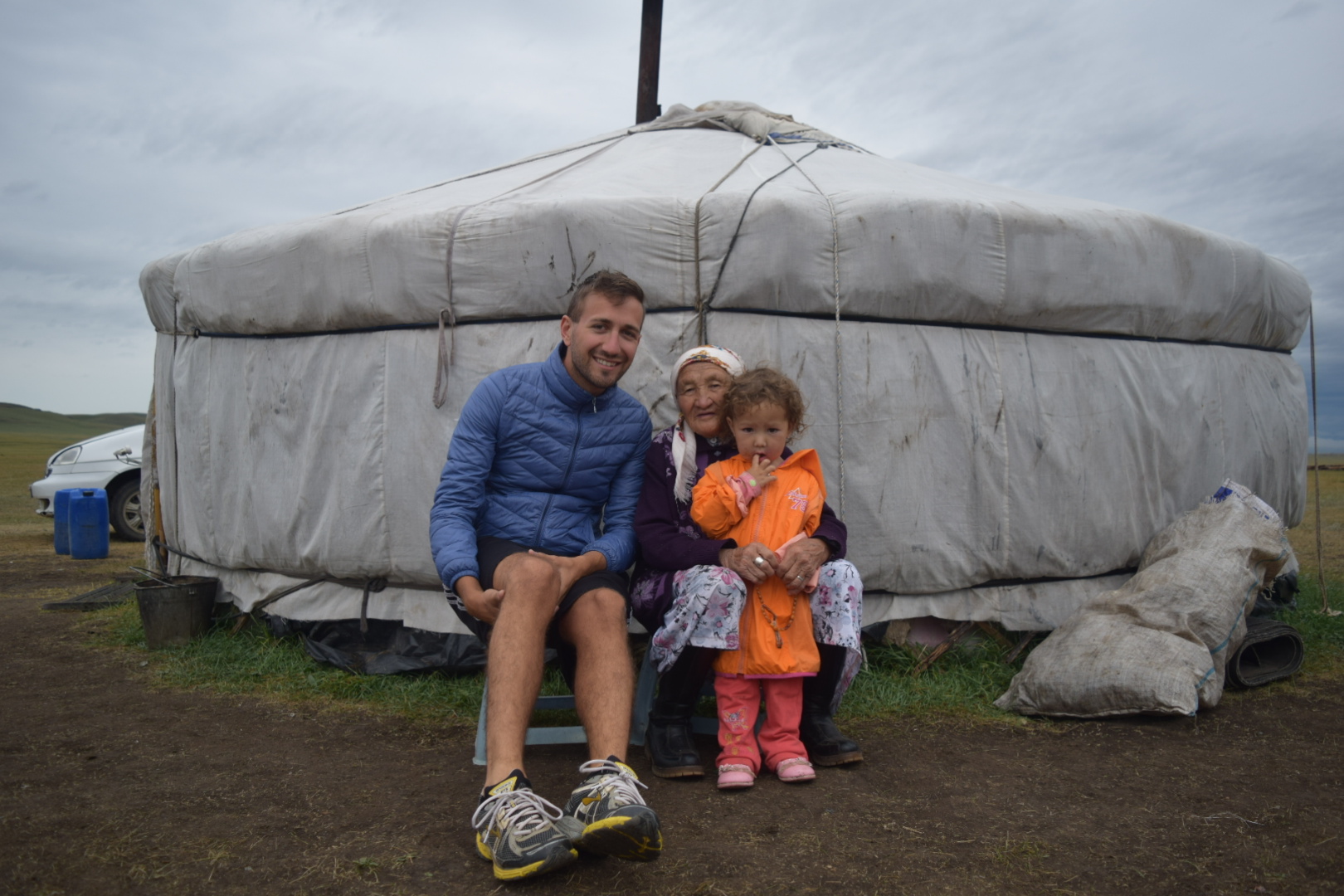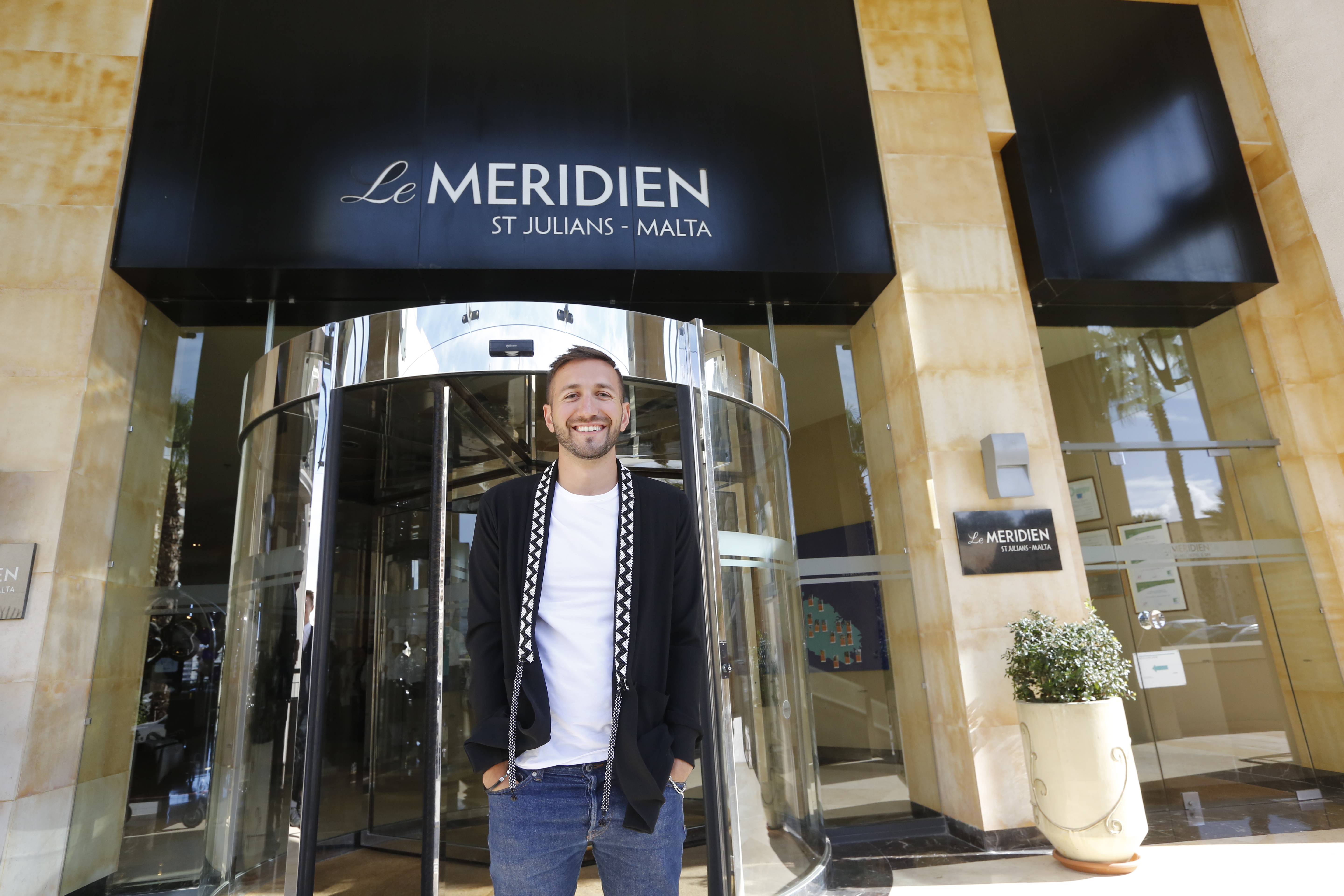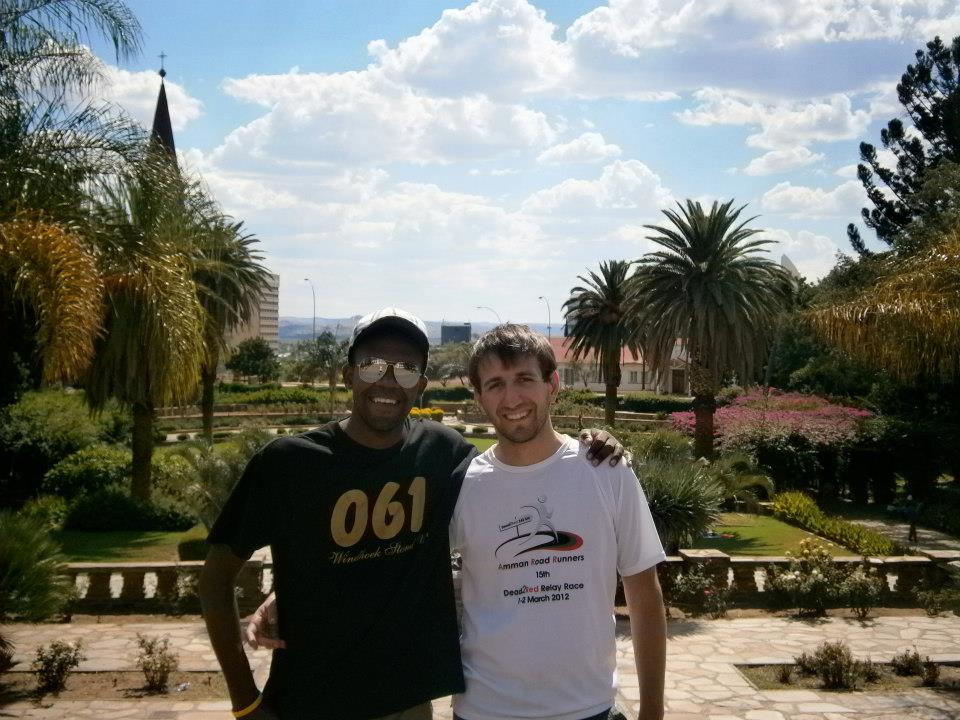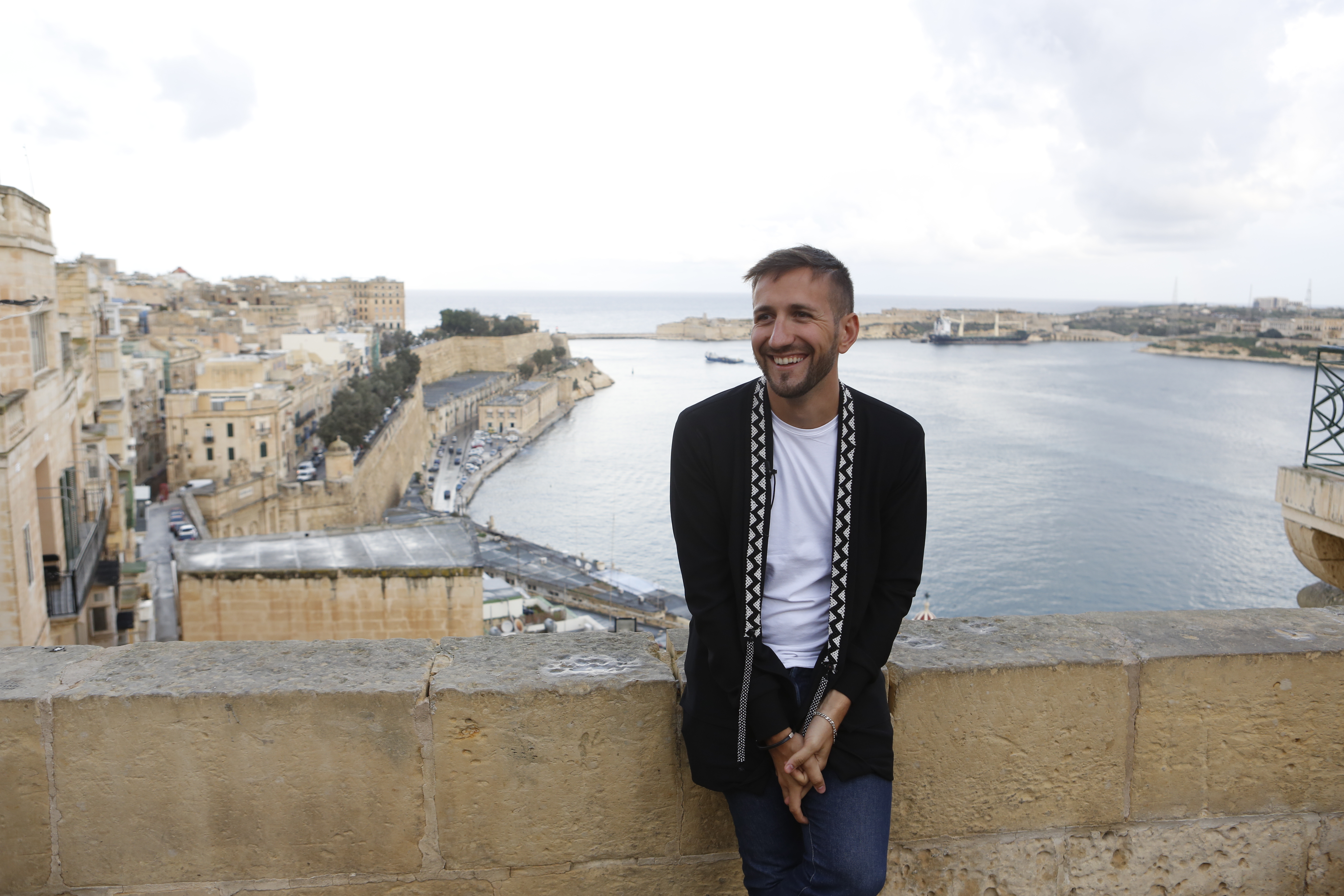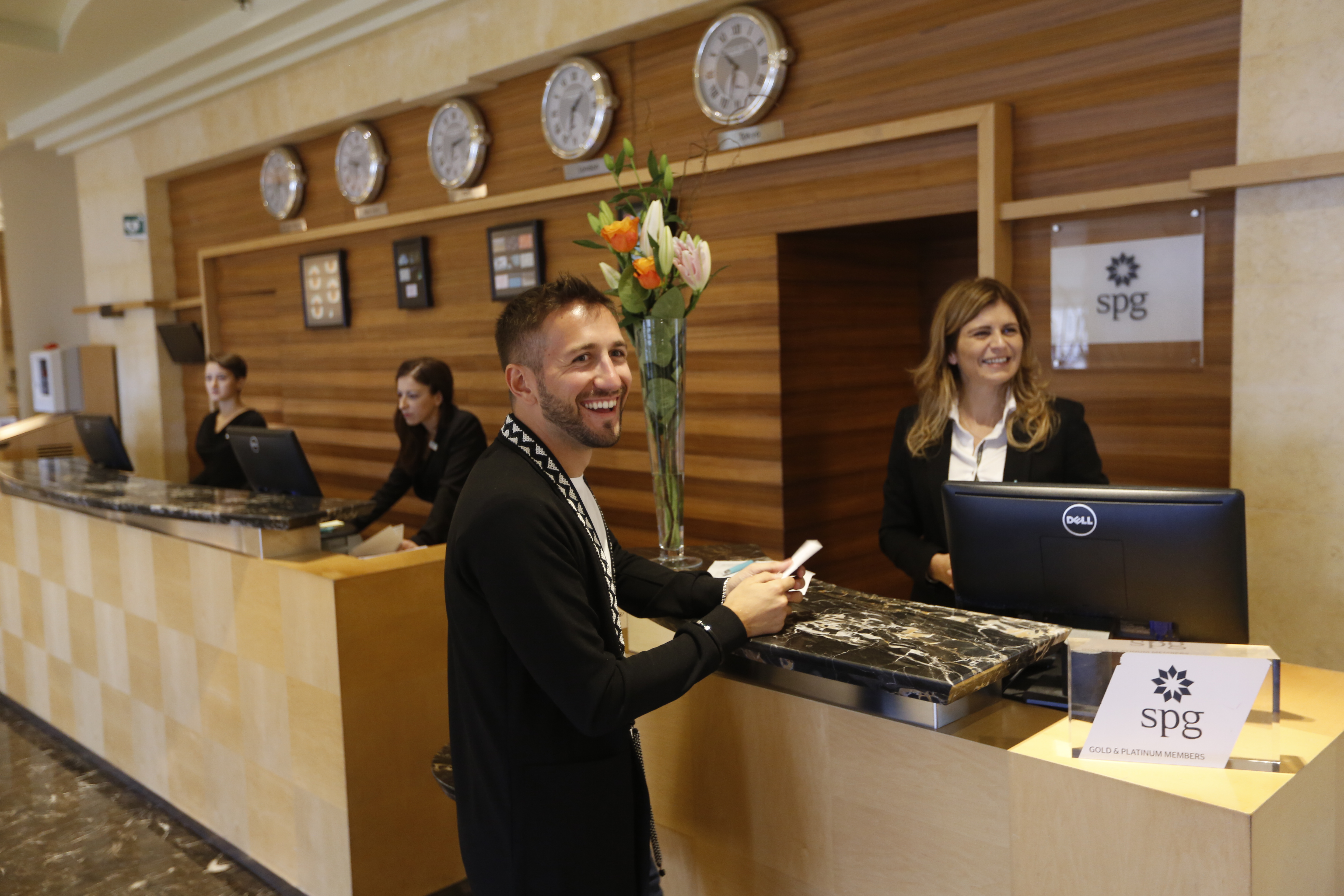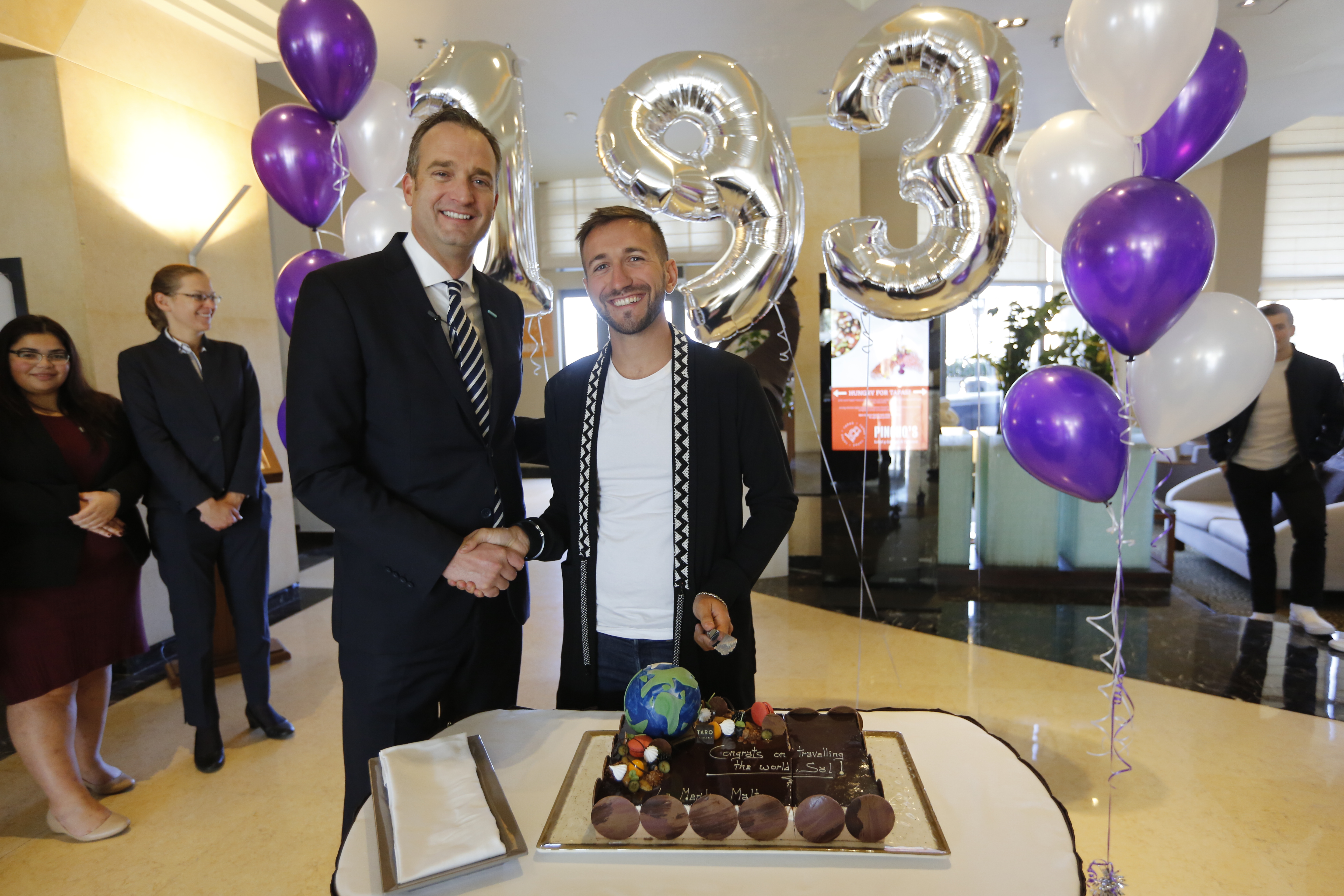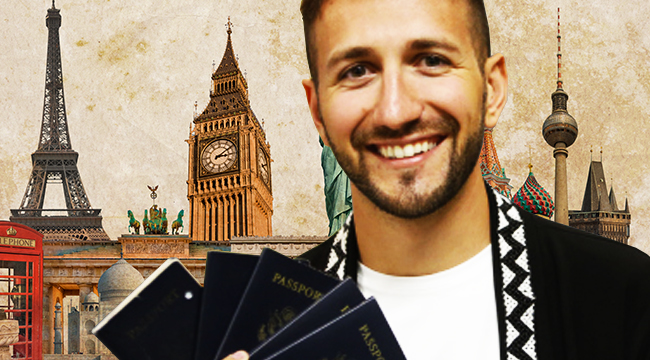
There are oh-so-many benefits to travel. It fights insomnia. It improves both mental and physical health. It challenges bigotry. It improves your sex life. And, there are literally tons of studies that support these claims. If you’re a scientist and want a splashy study, just focus on travel.
You don’t have to be a modern Phileas Fogg to reap those benefits, but just imagine if the more of the world you saw, the more your health profited. If that was the case, Sal Lavallo would be one of the most emotionally grounded, physically fit people on earth because, at just 27, Lavallo is one of the youngest Americans to have visited every country in the world. He’s been everywhere, man.
Last November, Lavallo rolled into Malta and concluded a journey to all 193 member countries of the United Nations. It was the culmination of over a decade of travel that began when he was a teen and developed as he attended an international boarding school and worked as a consultant in the Middle East. He also founded a non-profit called Trail of Seeds that distributes micro-grants and promotes culturally inclusive development. He is committed not to stamps on a passport, but to understanding cultures.
This week, Lavallo walked us through his charity, his decision visit every country, and how he finances his incredible journeys. He also drops some recommendations for people looking to travel more. His accomplishment truly is amazing, and we felt fortunate that he shared his thoughts with us.
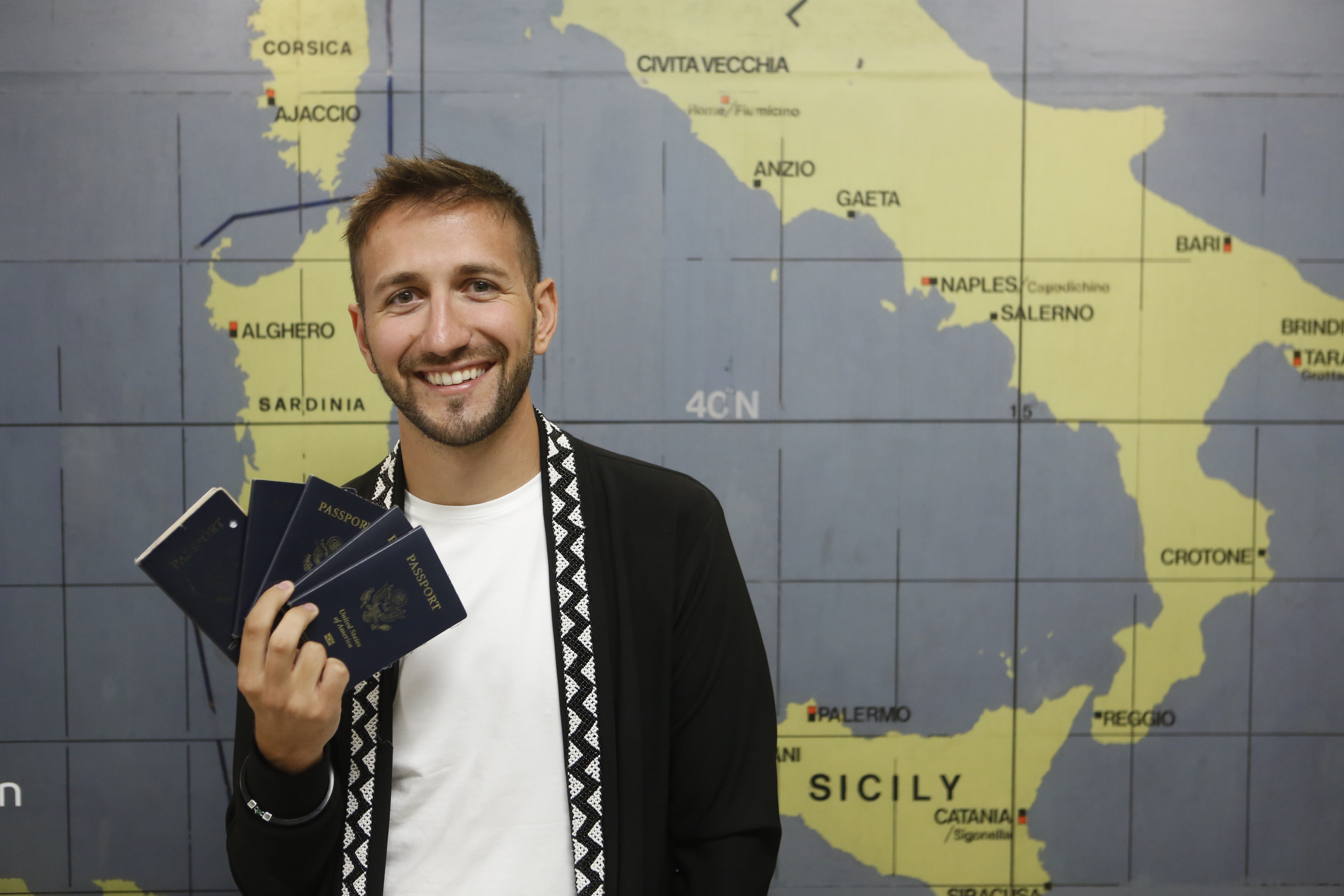
Did you grow up traveling?
My family and I travel a lot within the states. We love doing road trips, so we’ve visited 44 states driving around. When I was 13, my parents were like, “Now, every kid can take an international trip.” I wanted to go as far away as possible, so my father and I went to Japan and China for a few weeks.
Ever since then, I have traveled.
You have a non-profit related to later travel. At what point did you establish your nonprofit?
I was in university, I did projects in Tanzania in 2011, then in 2012, I did Venezuela and Brazil. In January of 2013, I did something in St Kitts, in the Caribbean. We promoted culturally inclusive development. It involved looking at development as not just an increase in economic indicators but as an increase in quality of life and realizing that quality of life and the metrics for it are society based.
We led communities through workshops that talked about identity and talked about development and talked about quality of life. Then we provided microgrants to the community, offering instiatives that they felt were culturally inclusive.
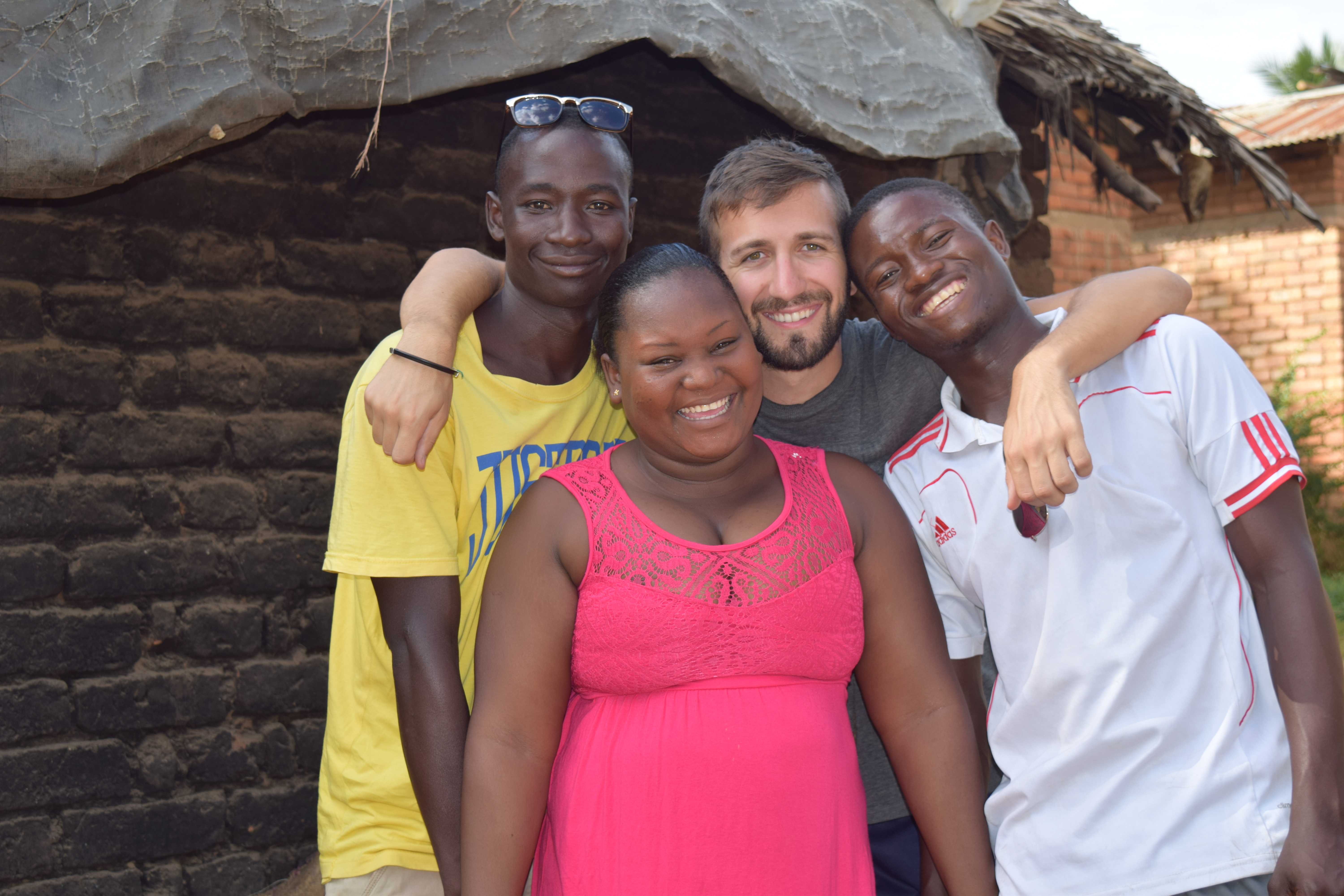
Oh, wow. Can you give me an example of one?
We worked with a group of female farmers in St Kitts in the Caribbean, and they did agro-processing. They took their raw goods and made cheese and wine and other products. Before we started the workshops, we said: “What do you think you would use the grants for?” Because they make things and we sell them, they felt they needed blenders and refrigerators to increase output and product income.
Upon doing the workshops and discussing identity, they realized the most important part of their group was actually coming together. They were talking about being mothers and being wives and being farmers. Instead of focusing on making more money, they actually decided to use the grant to fund a clubhouse so that they could meet together and make it more of a social group.
Metrics-wise, I can’t say that increased their income or any development indicators, But, an increase in their social productivity would increase their quality of life.
Were you traveling all of the countries that your nonprofit was serving?
Yeah. These weren’t longer projects. There were 4 or 5 workshops and then about a week of the grant rotation. I was on the ground, meeting each of the projects. In Venezuela, we had a team of 12 doing half of the workshops in two different communities, one in Brazil and one across the border in Venezuela. It was really fun work and definitely very impactful for us and the for the communities we helped.
At that point, you were already comfortable traveling and immersing yourself in culture?
I started the first project when I was 22. I went to United World College, which is an international boarding school that has students from 90 different countries. I was always around people from different cultures and trying to learn from them. In the university, I was studying clinical development and identity and culture. Using that analytical lens to do the work felt really natural.
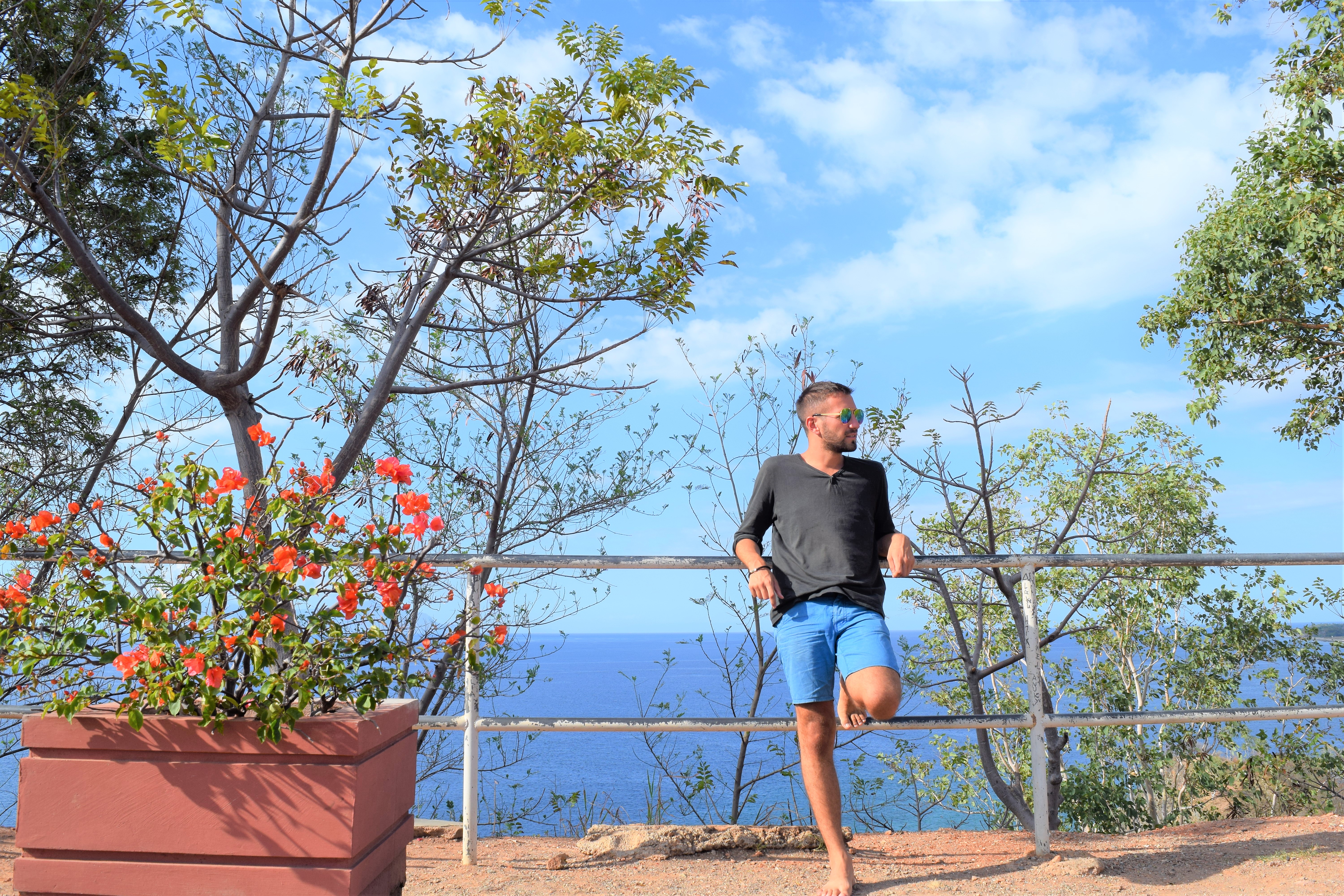
At what point then do you decide, “I’m just going to keep traveling and see if I can get to every country?”
After graduating from NYU, I started working in Abu Dhabi. I worked there for three years between Abu Dhabi and Nairobi. And in my projects, I traveled four or five days a week, so I’d go to Egypt and Pakistan and Saudi Arabia and New Zealand. I was traveling for work and building up a lot of airline and hotel points with Starwood Preferred Guest and Marriott. I was able to spend my private time on three-day weekends and four-day weekends to make trips as well because I was so centrally located in UIE. There are so many connections and they have so many properties around there. It really makes it easy for these long weekends.
Then, I decided to take two months off. That turned into a year. Then, at the end of the first year, I wanted to continue traveling. But, I thought if I took off another year, I should make a goal to achieve something. I decided 2017 would be the year I would finish. Really, I didn’t think I’d get to every country until less than a year ago. At that time, I still had roughly 40 countries left. When I left work, I was already at 115. In the last two years, it’s only been about 70 or 80.
Oh wow, it’s still a lot. A ton!
I actually spent about 60 or 70 percent of my time returning to places. People always imagine that I’m constantly in a new place. But really, I have a couple bases and places that I’m very interested in. So, I’m constantly in the UAE and pretty often in Kenya or Tanzania. I’m in Europe really often.
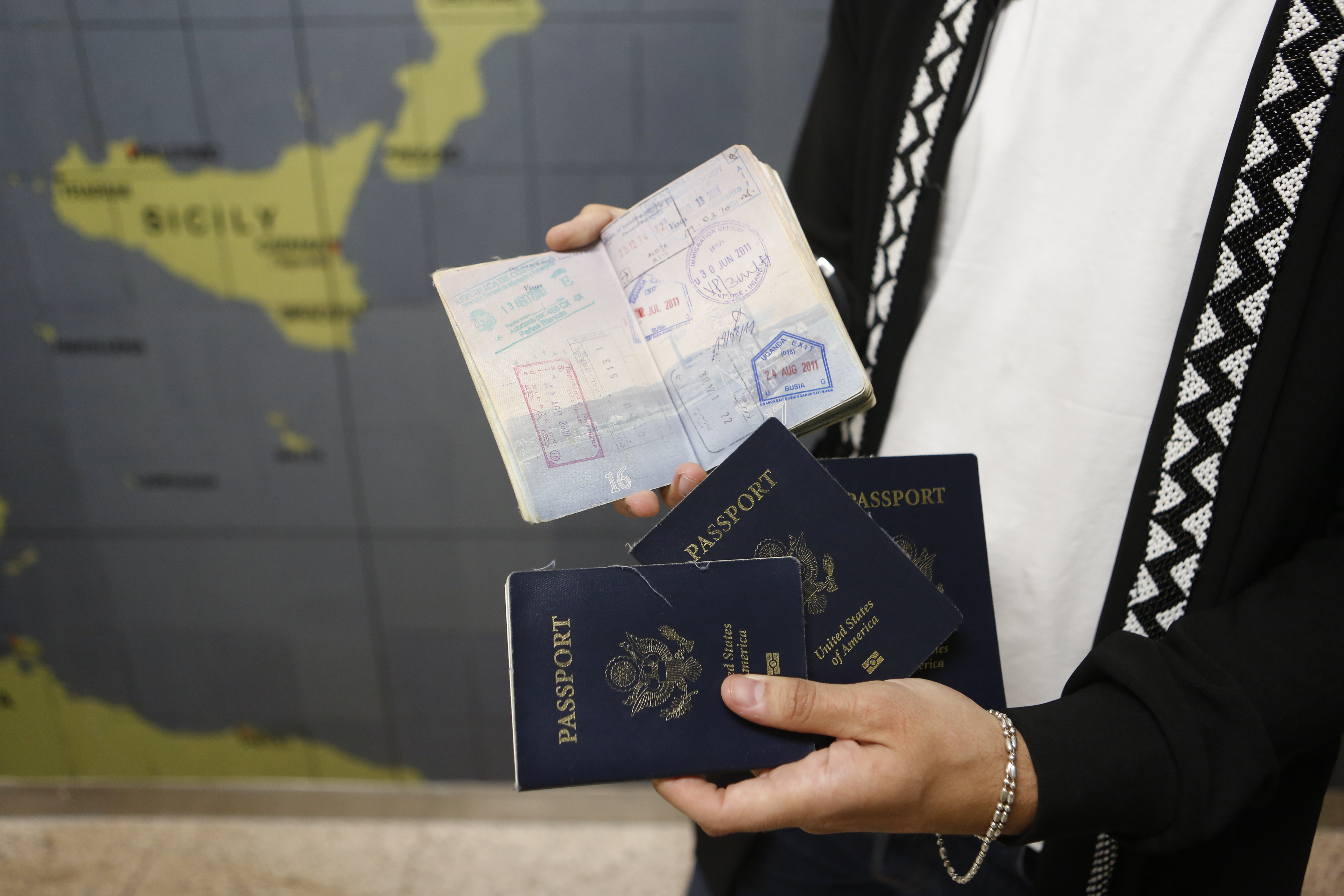
How long do you get to stay? I mean, I know that varies since it’s like almost 200 places to talk about, but I mean are you only there in some of them for a day or do you get to actually stay and participate in the culture?
I mean obviously, with 193 countries, it completely depends. I think each trip needs to have a purpose. Like, for me, the point is never to check off a box. There’s always something I want to do or something I want to learn in the country. I’ve not lived in the states since 2011 so in the past six years, very little of it has been trips for tourism, very little has been short trips. There are 15 countries that I’ve lived in for two or more months. I think there are also 15 countries that I’ve been in that I haven’t slept in. That goes for mostly small countries in Europe like Luxembourg. The average is five days. For a long week, I’ll stay at each port.
You know what’s funny? I worked for months and months in Saudi Arabia but, I was in an office 18 hours a day. If I have an 18-hour layover somewhere that leaves significantly more time to explore than I did those days in Saudi. But, then, I have the intimate knowledge of working in the Saudi economy for so many months as well.
Sooo…. how do you manage that financially? You mentioned that you used Marriott reward points and Starwood preferred guest points. What else?
A lot this has been for work and for school, so I’ve been able to utilize those institutions and companies for the travel. And then my personal life, a lot of it has been with points. I stayed in 60 Starwood Preferred Guest hotels in 40 different countries over the course of the five years that I’ve been platinum. Also, because I went to international schools and worked for international companies, I stayed with friends in roughly 75 countries, which obviously decreases the cost by having a local contact and also increases the intimate knowledge because you are with the locals.
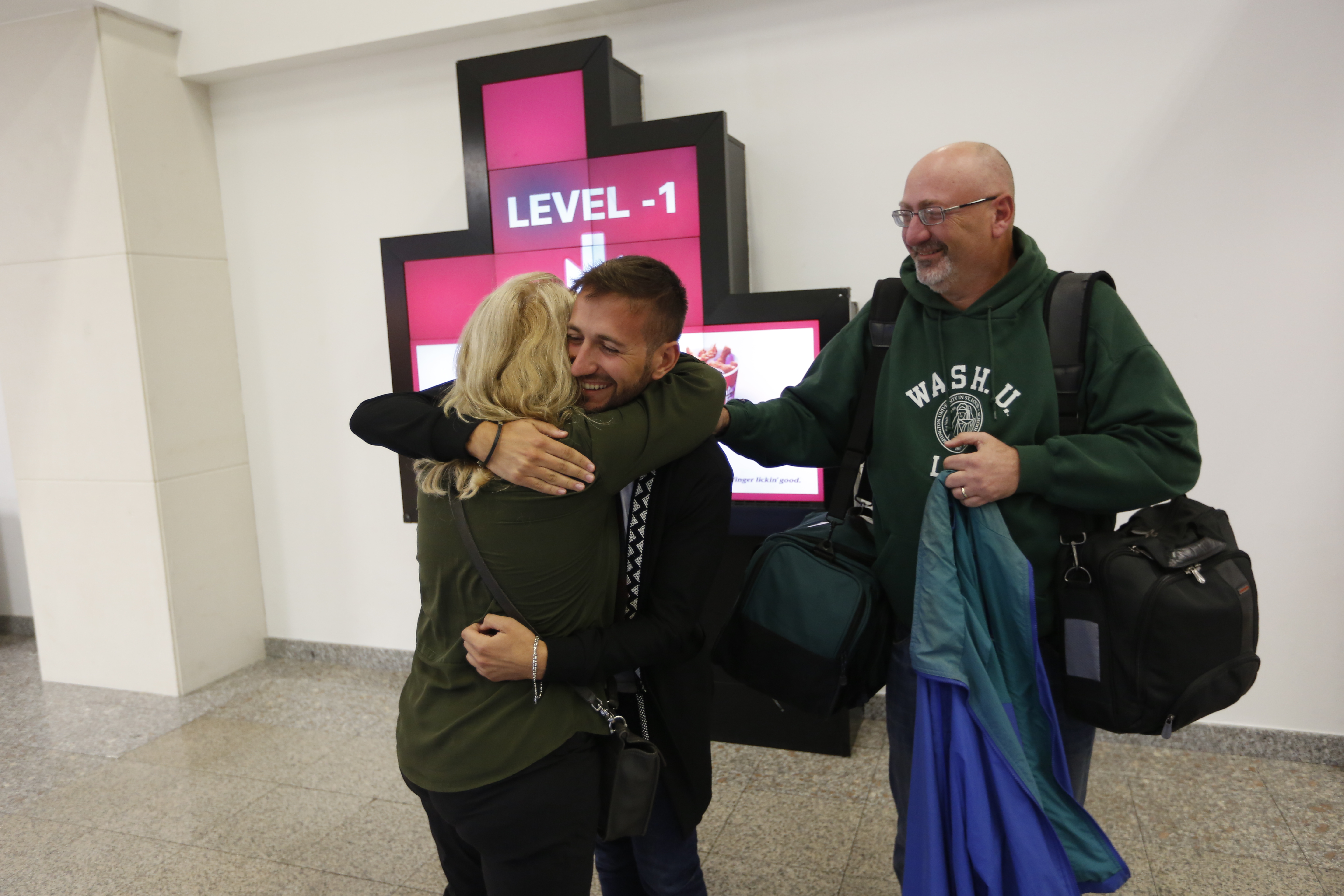
You know people who live in 75 countries? That’s fantastic.
My boarding school has people from 90 different countries each year. There’s about a hundred from that and then I’ve worked at global institutions, so I know another 30 or 40 of them. Very often, if I don’t know anybody, I can go to a Starwood Preferred Guest hotel and make friends with the concierge. They treat you like you’re staying at their home even if you’re at a hotel.
What countries stand out as highlights of your travels?
There’s so many. If you name a country, I’ll tell you a story. For me, it’s always the connections that I find between people. My number one emotion at the end of all this is gratitude because I’ve been so helped by so many. There are institutions like boarding school and those companies I’ve worked for and the loyalty programs of Starwood Preferred Guest and Marriott Rewards that have helped me.
There’s this one time when I was in North Korea. I expected it to be like one of the hardest places to connect with people; they would be the most different. And my first night in the country, I spent the whole night staying up late talking with a guy. We talked for hours and he was my age, and we just talked about sports and girls, and making our dads proud, and getting jobs and building families.
It was this realization that borders and politics can’t really take away our humanity. You have something in common with everyone and that’s why I like to travel. I like to go and see someone who’s completely different … gender, race, or class or nationality or anything, but with whom I still have so much in common. It’s like Abu Dhabi; I find really important solitude in the desert. I think it’s beautiful there. It’s diverse, with people from all over the world. Issues of gender, race, religion, and class are so important that you’re learning and discussing every day.
I also really liked Tanzania. It has an interesting development history, and they have a national policy of supporting one another. Seeing that happening on such a large scale is exciting, to see something like that really reviewed in the culture is so uplifting to see. The world isn’t always easy.
Naturally speaking, you don’t have to leave America to see some amazing things. The Grand Canyon is one of the most awe-inspiring, like a natural highlight.
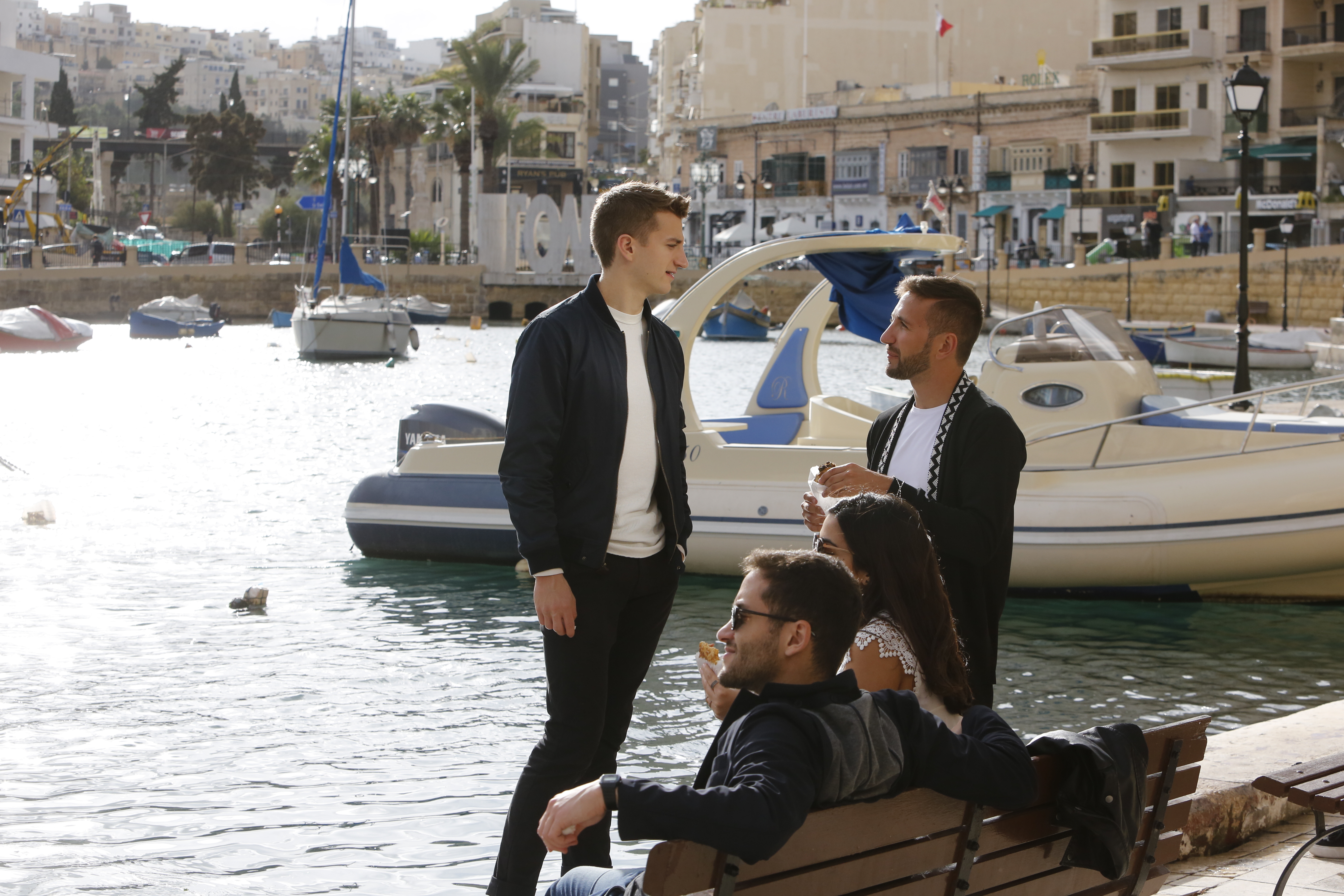
I know that your travel wasn’t necessarily tourism based, but are there any places that you would recommend people travel that are particularly good in the winter?
For winter travel, I think that you can go anywhere in the Caribbean from the states, but I think what’s interesting is to get out of the resorts even if it’s only one of the days that you’re there. Walk through towns. They all have really interesting colonial histories. They all have really interesting cultures. They all have really interesting stuff like fine art, visual art. Add on to locations you’ve already heard of or you can go to Central America and go zip lining over jungles and black sand volcanic beaches and all of that.
What do you think is the importance of that travel?
It should be about your passions. You need a reason to travel. When people say they want to see the world, the first thing I say is “Why?” because I think it’s silly to take so much time and spend so much money just to cross something off a list. It really should be connected to your passion. Maybe you’re interested in dancing, you want to travel all around and learn about the different dances that you’re interested in. Maybe you want to see the various ways that people are eating, or you want to see different religious sects. I think it needs to fulfill people’s curiosity and fulfill people’s passion.
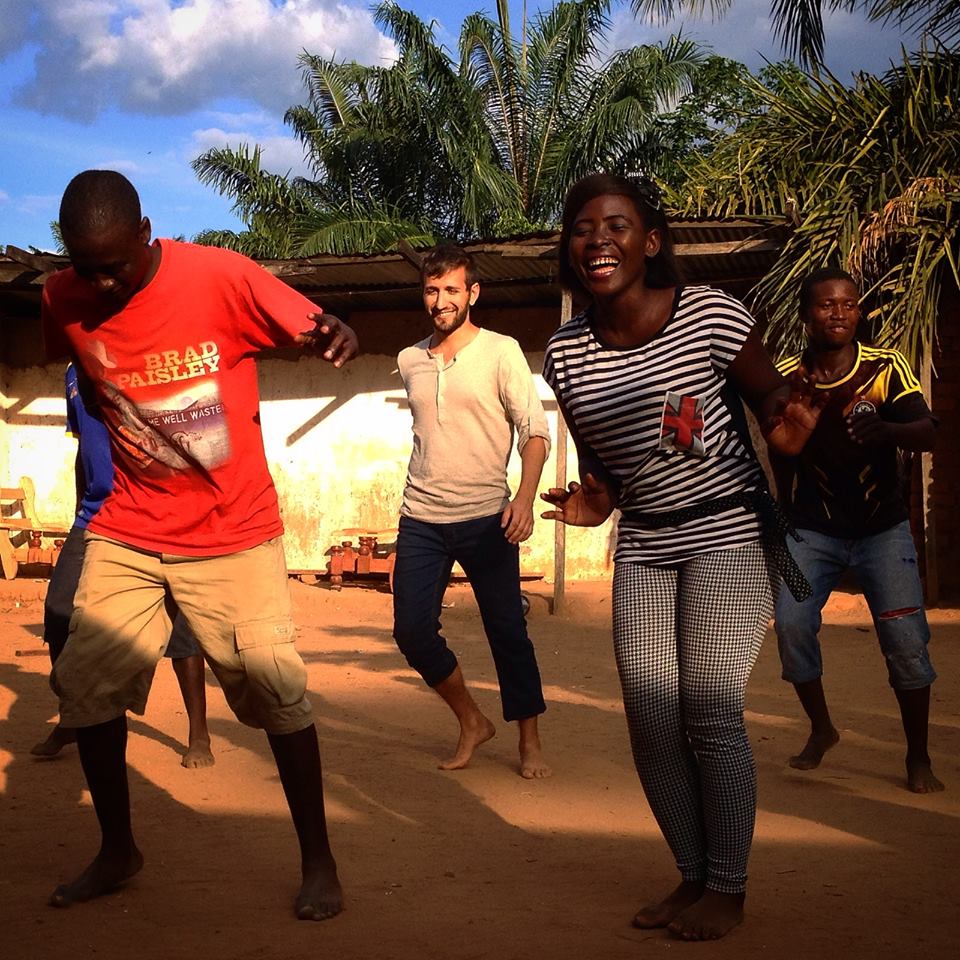
Any trips on the horizon?
I think I’m gonna settle down a little bit. Sometimes, when I need to disconnect, I will find one of the Starwood Preferred Guest resorts and I’ll stay there for a whole month. I won’t use my phone, and it’s like a very comfortable way to take a step back. It’s also a much higher comfort level because you get free breakfast and all that. It’s all paid for with your place. I’m looking for one to chill in for January, and then, maybe I will get a job or an apartment or do more normal guy things.
